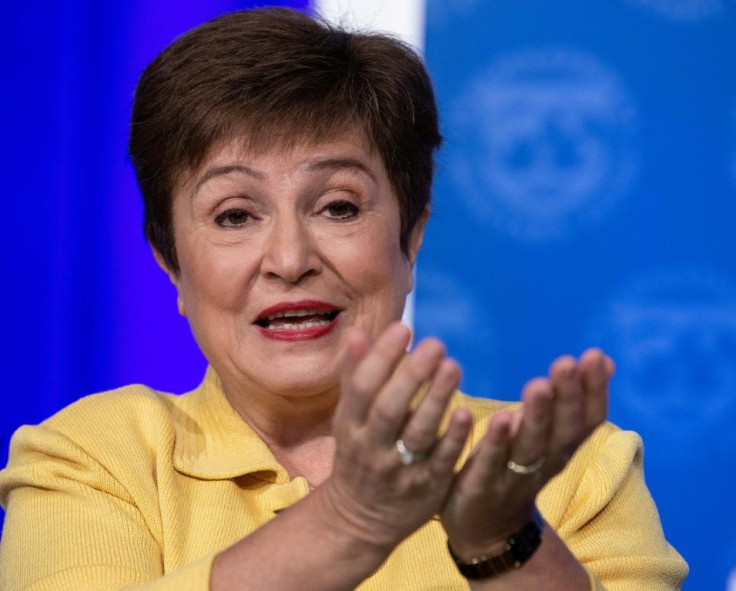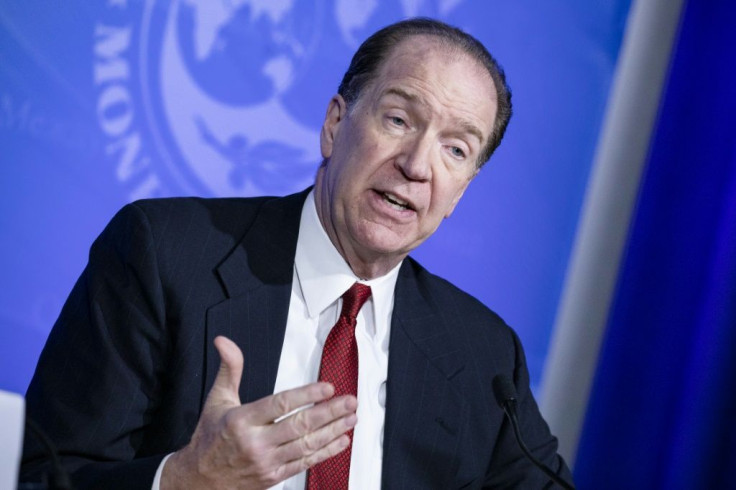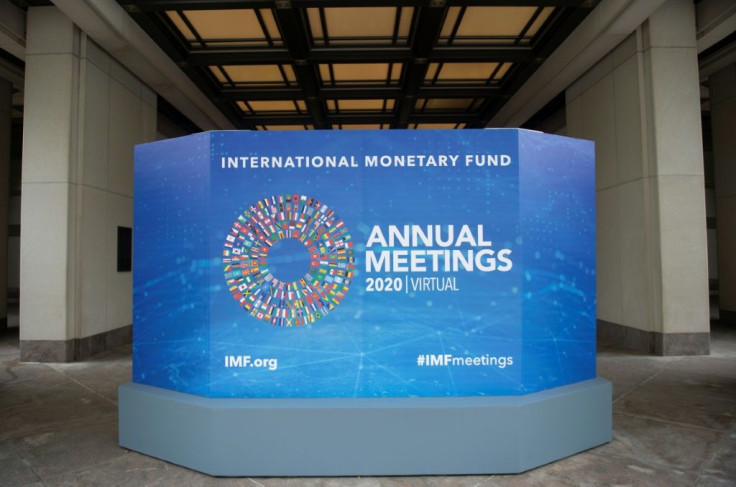IMF, World Bank Marshall Forces To Push For Aid For Poorest
The world's two dominant emergency lenders opened their annual meetings on Wednesday with a renewed call for the wealthy to help the poorest deal with the ravages of the coronavirus pandemic, within national borders and globally.
The leaders of the IMF and World Bank have been banging the drum about the need for governments to continue to spend amid the crisis to help support businesses and jobless workers, to keep the emergency from growing far worse.
But with national and corporate debt levels soaring amid record low interest rates, the crisis presents a puzzle for the Washington-based institutions that have always called for caution in spending.

So far the calls to spend have been heeded -- but IMF chief Kristalina Georgieva and World Bank President David Malpass are sounding the alarm against becoming too complacent with the early success and urging creditors, notably China and private lenders, to do more to ease the debt burden on the most vulnerable countries.
"Nine months into the pandemic, we are still struggling with the darkness of a crisis that has taken more than a million lives, and driven the economy into reverse, causing sharply higher unemployment, rising poverty, and the risk of 'a lost generation' in low-income countries," Georgieva told reporters.
"I worry most about withdrawing support to workers and firms prematurely, because it could cause a wave of bankruptcies and massive increase in unemployment," she warned.
The fund projects a 4.4 percent drop in global GDP this year, a smaller decline than forecast in June due to the stunning $12 trillion in resources that governments pumped into their economies worldwide.

But despite a 5.2 percent recovery forecast for 2021, the world economy is expected to lose $28 trillion in output in the next five years.
And with signs the virus is resurging in many countries and no vaccine yet available despite a global push, Georgieva warns that "all countries now face a 'Long Ascent'" out of the crisis, "a journey that will be difficult, uneven, uncertain, and prone to setbacks.
In keeping with its tongue-in-cheek moniker "It's Mostly Fiscal," the fund is again recommending policymakers consider raising taxes, but now said those increases should focus on rich individuals and firms, notably those that may have profited during the pandemic.
Those revenues could then be deployed to provide health care, job training and other support to citizens in need, the fund said.

Malpass, meanwhile, has been particularly strident in his calls for governments and corporations to provide more debt relief for poor nations.
The Group of 20 major economies earlier this year agreed to a debt service suspension for the poorest 43 countries, freeing up $5 billion through the end of the year -- short of the $8-11 billion expected.
The G20 approved a six-month extension of the Debt Service Suspension Initiative (DSSI) on Wednesday, but Malpass has continued to raise concerns about the lack of transparency in lending -- especially, though not only, by China.
China is the largest of the creditors, seeing its share of the debt owed to all G20 countries rise to 63 percent by the end of last year from 45 percent in 2013, often through massive infrastructure projects in developing countries.
Georgieva said China will need to "mature domestically in terms of how they, they handle their own lenders (and) the coordination among them."
But the World Bank chief said the challenge remains to convert this process into "meaningful" debt reduction "that will allow durable growth into the future."
At an event later Wednesday, Georgieva agreed on the need for "more grants and much more concessional financing for poor countries."
Officials also fret that private participation in the debt initiative has been largely absent, with only three of the 43 nations reaching out to their private creditors.
Covid-19 remains the overarching problem, and the IMF leader said rapid success on medical solutions could add $9 trillion to the global economy by 2025.
"A durable economic recovery is only possible if we beat the pandemic everywhere," she said.
© Copyright AFP 2024. All rights reserved.





















